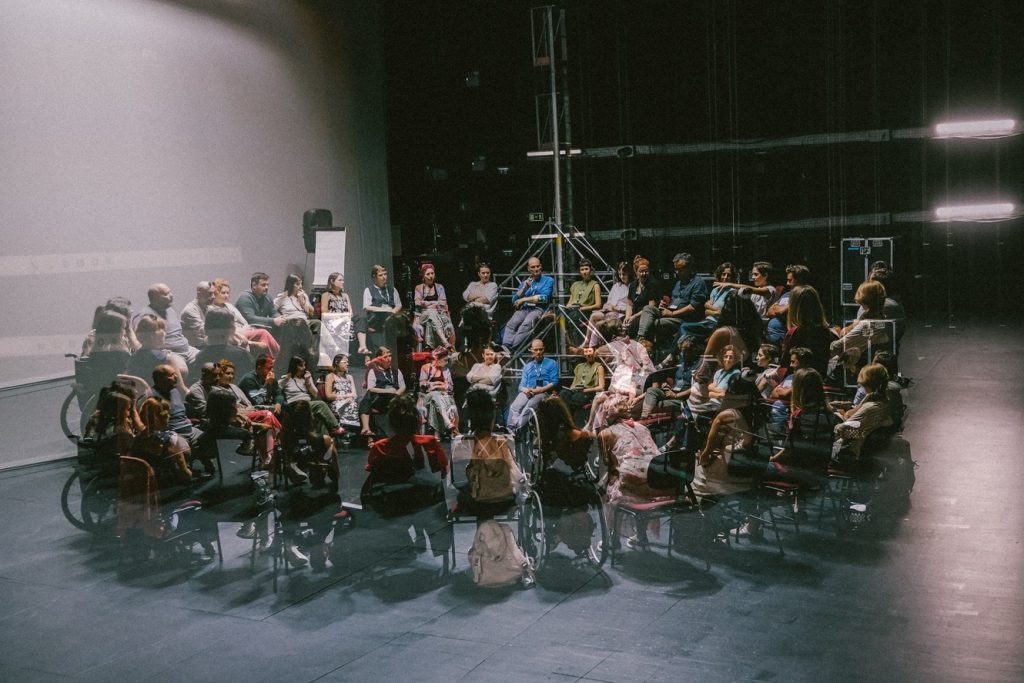We Want More! – meeting and workshop in Lisbon
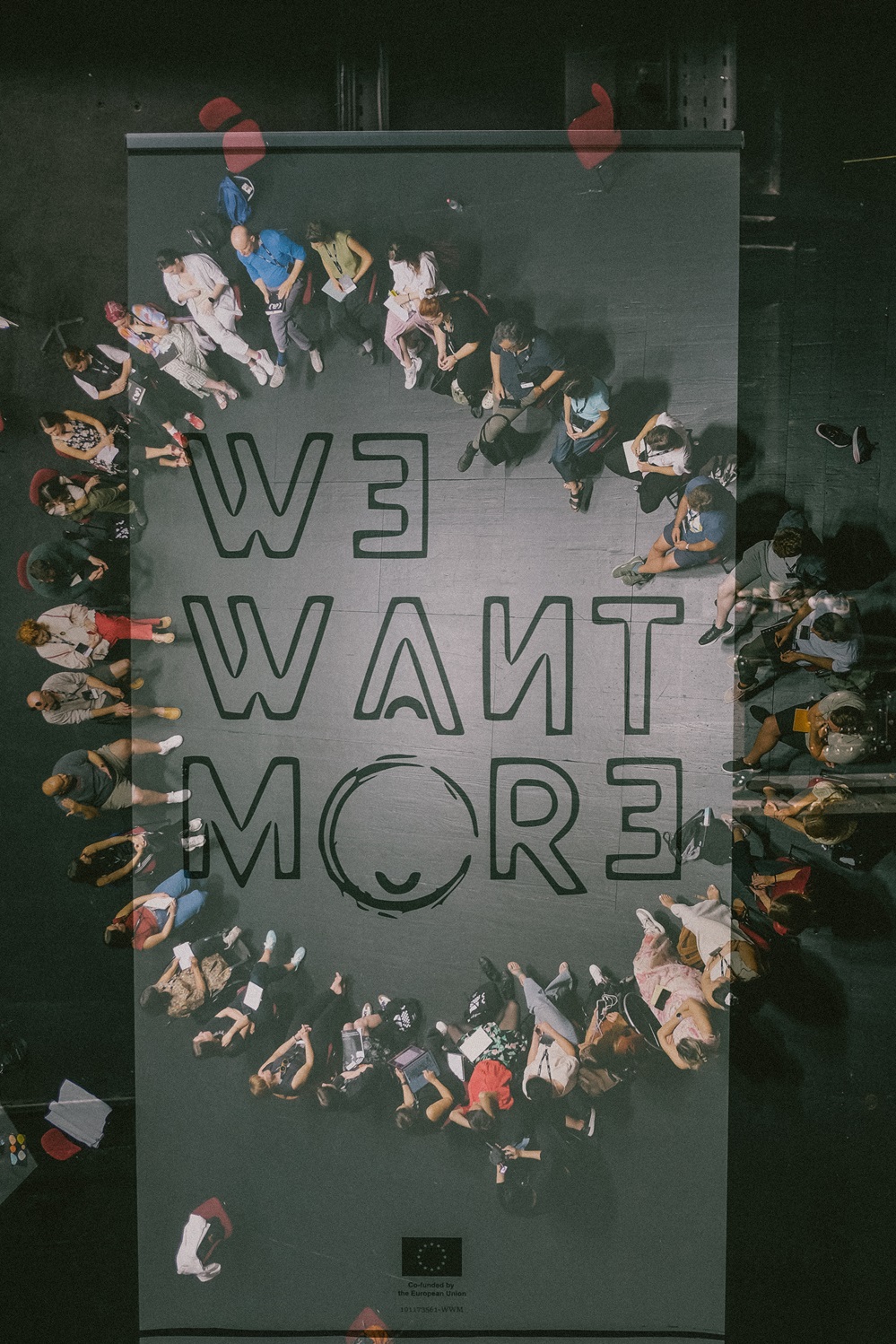
Earlier this week, Teatro São Luiz hosted one more meeting from We Want More!, a project funded by the European Union that promotes accessibility and the inclusion of theatre artists, both with and without disabilities.
At the same time, the project brought together artists from the European Union, the Western Balkans (Albania, Bosnia and Herzegovina, Kosovo, Montenegro, North Macedonia, and Serbia), Turkey, and Ukraine, as part of the international workshop “Capacity Building for Inclusion of Theatre Artists”, held from September 12 to 16. The sharing of ideas and learning was the driving force behind conversations dedicated to diverse and emerging themes within this field of reflection.
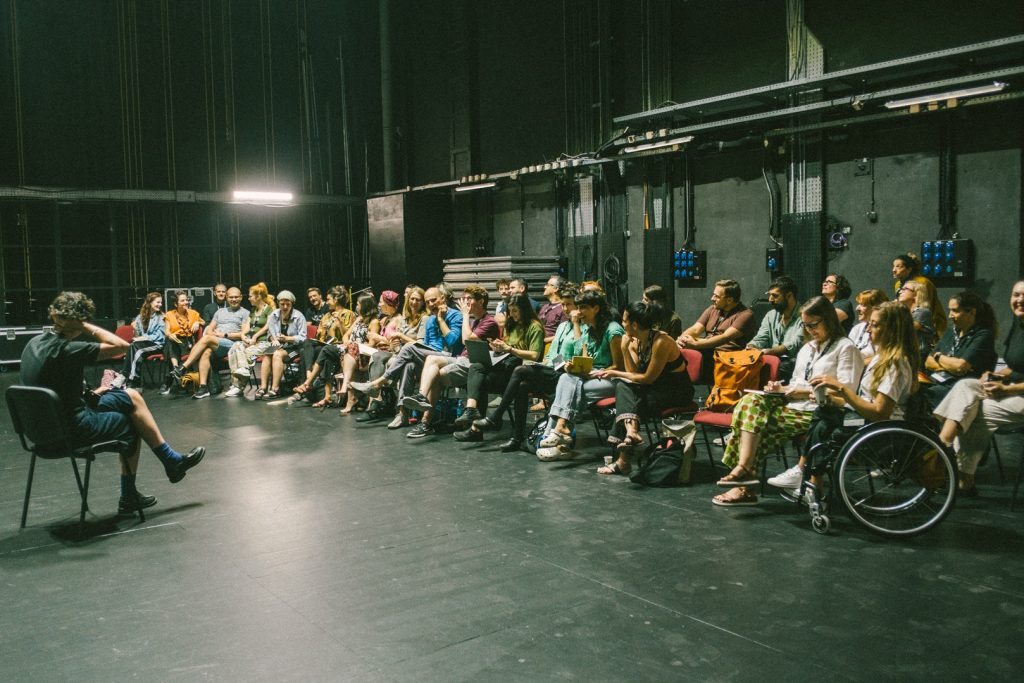
Among the guest speakers, Aggie Dolan (Head of Inclusion at Battersea Arts Center, UK) invited participants to look inside a reference organisation, highlighting the importance of coordination across different areas to make accessibility practices a structural and identifying feature of an artistic institution.
Other contributions enriched the programme. Portuguese performer, creator, and researcher Raquel André, together with actor and director Guilherme Gomes, posed fundamental questions to the group of 30 participants:
- “Which paths do we take to understand the concept of accessibility in structuring an artistic project?”
- “How can we see it as the possibility of achieving equitable artistic participation that truly represents the plurality of the world?”
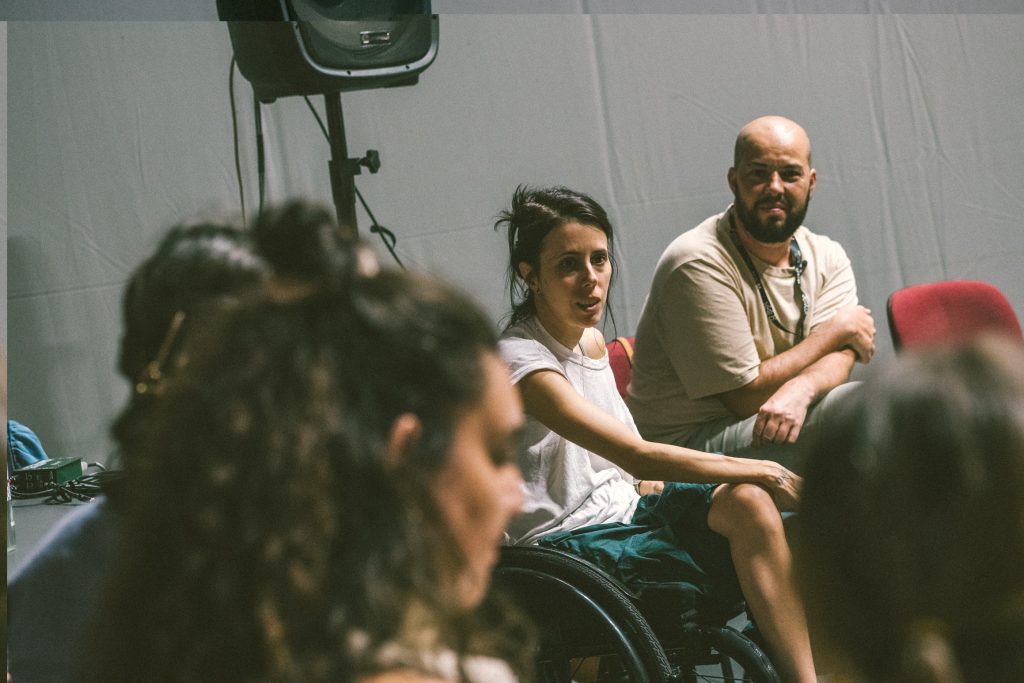
Diana Niepce (dancer, choreographer, and writer) addressed themes such as bodily transformations and violent performances. Her work, also focused on existentialism and live art within the inclusive arts sector, opened up a space for reflection with André Tecedeiro (poet and playwright) around the importance of identity.
“The plurality of identities becomes essential for the vitality of artistic dynamics, breaking with hegemonic models and giving visibility to silenced narratives.”
From this dialogue, further questions emerged:
- “But do we actually see this plurality today in cultural organisations and artistic works?”
- “How can we affirm the importance of such plurality?”
The programme also featured a roundtable discussion on Accessibility in Artistic Works — Mainstream Inclusion and Representation of Disadvantaged Groups in Theatre Production and Directing. Speakers included:
- Alice Azevedo (actress and director, Portugal)
- Gianfranco Berardi (actor, director, and co-director of the Berardi Casolari company, Italy)
- Maria Inês Marques (performing arts programmer, Theatro Circo, Braga, Portugal)
- Sara Borges (head of mediation and participation programme, Theatro Circo, Braga, Portugal)
- Marko Potkonjak (actor and director of PLAVO Theatre, Serbia)
- Vassilis Oikonomou (filmmaker, actor, and artistic director of THEAMA – Theatre for People with and without Disabilities, Greece)
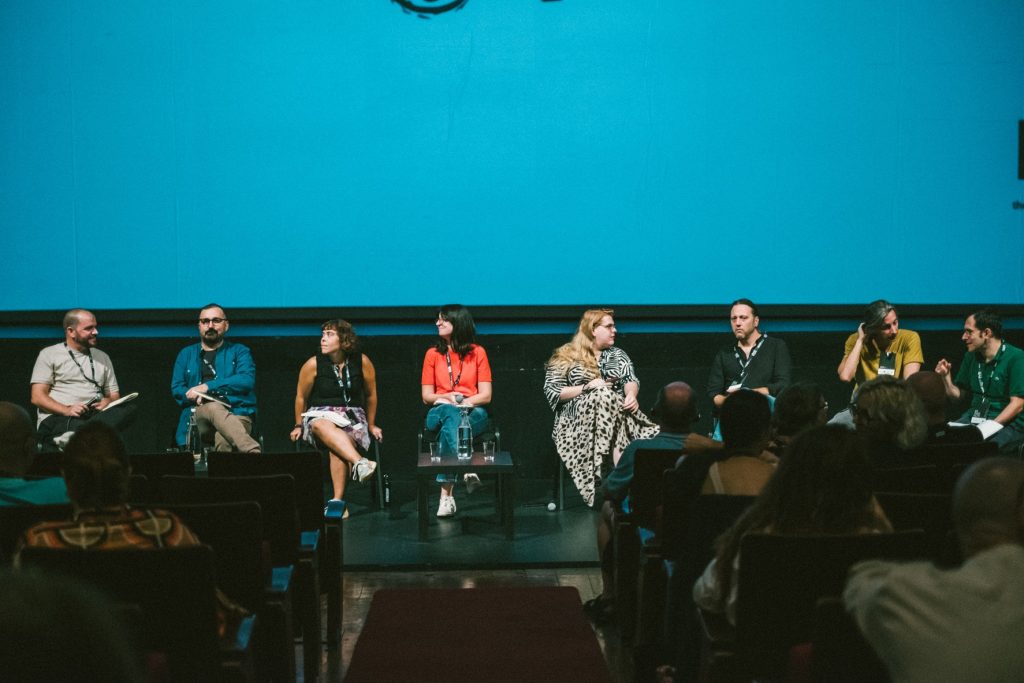
Another central question was raised: “What does access mean in artistic creation?”. It was posed by Maria Vlachou (Executive Director of Acesso Cultura), who stressed the emergence of a new awareness in the cultural and artistic sector: the importance of structurally implementing a more diverse, accessible, and participatory vision.
“We are inspired by people and places. But who are they? Where are they, and what concrete measures are in place?”
Along these lines, Portuguese directors and actresses Zia Soares and Cátia Pinheiro added further provocations to the discussion:
- “What does change mean?”
- “What happens in the dynamics of collectives from a human, logistical, or institutional perspective?”
- “What do we change internally and externally?”
- “What internal and external responsibility do we assume when we provoke change?”
Throughout the five days, participants engaged with multiple perspectives, realities, stories, bodies, identities, cultures, and languages. The workshop served as a space for exchange, dialogue, and the proposal of concrete actions towards more inclusive artistic creation.
The conclusions of this work will be compiled into a document with practical guidelines, to be made publicly available and shared with professionals in the field.
